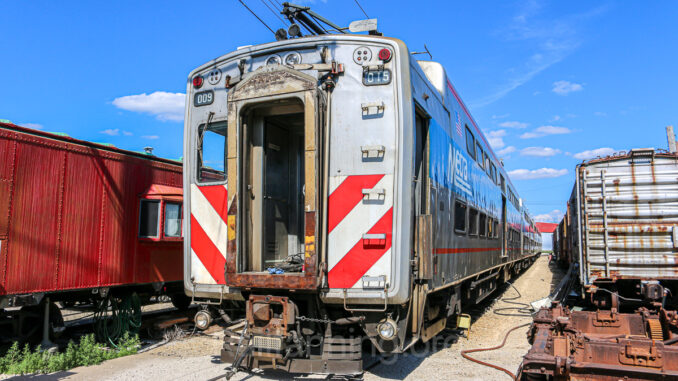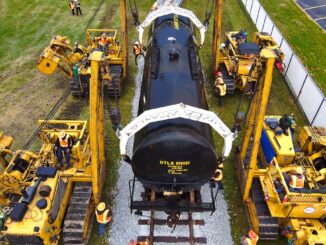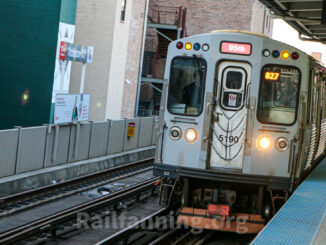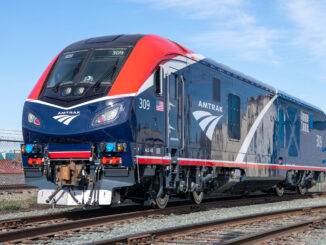
(The Center Square) – Ridership on Metra, the taxpayer-supported commuter train agency that serves Chicago and its suburbs, continued to remain significantly below pre-pandemic levels in 2021 while the agency’s operating expenses continued to grow.
Federal taxpayer funding buoyed the agency’s finances. Federal funding for operating expenses increased from $3.6 million in 2019 to $159.8 million in 2020, according to the U.S. Department of Transportation’s Federal Transit Administration. Total federal funding, including capital funding, jumped from $200.2 million in 2019 to $368.2 million in 2020. That’s an increase of 83.9% in total federal funding, much of which was given out as relief money as part of the federal government’s response to the COVID-19 pandemic.
Public transit ridership declined across the country in March 2020 as a result of the COVID-19 pandemic.
Metra is a commuter train service with a network of 11 lines on 1,200 miles of track in Cook County and the collar counties of DuPage, Kane, Lake, McHenry and Will along with the city of Kenosha, Wisconsin. Metra is the commuter rail division of the Regional Transportation Authority. It is among the largest transit agencies of its kind in the United States.
Ridership declined by 24.3%, or 4.5 million rides, in 2021 compared to 2020, according to the agency’s audited financial statements. Metra provided 14.1 million rides in 2021 compared to 18.6 million rides in 2020. In 2019, Metra provided 74 million rides. As ridership fell for the second year in a row amid the ongoing COVID-19 pandemic, so did passenger revenue. Passenger revenue declined $35 million, or 34.2%, to $67.4 in 2021.
“2021 ridership was approximately 19% of the 2019 ridership level,” the agency noted in its audited financial statements.
Metra has reported passenger gains.
“[Metra] provided more passenger trips in the first quarter of 2020, before COVID-19 started, than [Metra] did in all of 2021. That’s why 2020 is higher,” Metra Director of Communications Michael Gillis said. “But as you can also see, ridership in the remaining quarters of 2021 outpaced the similar 2020 quarters. Basically, we have been climbing back from the second quarter 2020 low.”
While ridership remains significantly below 2019 levels, Metra’s expenses have continued to climb. Total operating expenses before depreciation increased 6.7% in 2021 to $730.5 million, including a 30% increase in administration expenses and a 38.7% increase in engineering expenses, according to the agency’s audited financial statements.
In 2019, operating expenses before depreciation were $802.1 million. In 2021, operating expenses before depreciation were about 9% lower because of reduced service levels in response to decreased ridership, lower maintenance costs from using less equipment and lower labor costs from lower average headcount, according to the agency’s audited financial statements.




